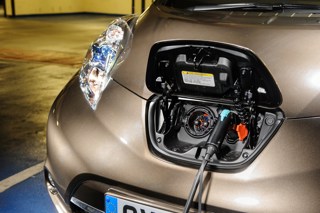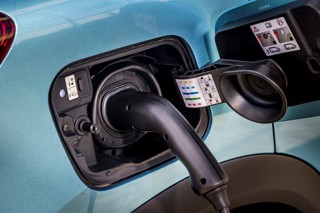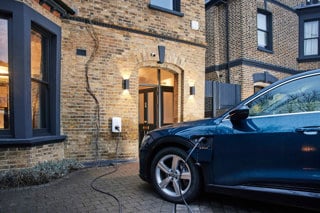Dee Humphries, electric vehicle (EV) solutions director at Equans
Priorities have shifted for businesses in recent years, with sustainability making its way to the top of the agenda for many.
Making a conscious effort to reduce corporate carbon emissions and become more sustainable has switched from being a consideration – to something that is essential for every organisation, in order to support the UK’s 2030 target to end sales of new petrol and diesel cars and the overall 2050 net-zero target.
Whilst there are many ways for businesses to improve their sustainability credentials, organisations are increasingly considering fleet electrification as part of their sustainability strategy.
This is reflected in recent EV uptake figures, which are showing strong stats this year - in March 2022 alone, more than 39,000 new battery electric vehicles (BEVs) were registered, which is an increase of 78.7% on last year.
When it comes to transitioning to EV for fleets, there are many benefits for businesses, including financial and environmental.
Here are three things that should be taken into consideration for those who still haven’t made the switch:
Sustainability – a reduced corporate carbon footprint
It’s certainly not a surprise that vehicle emissions are currently one of the main contributors to air pollution.
In fact, it has been reported that transport is now the UK’s largest emitting sector, with 91% of those emissions coming from road transport.
Whilst this figure is declining, there is still a long way to go to achieve net zero emissions.
Making the switch to EV can have a significant impact on reducing your businesses corporate carbon footprint and can ensure your business supports the UK’s transition towards a low carbon future.
By changing to EVs for your company fleet and employee company car options, or by encouraging members of staff to utilise the charging points, you can considerably reduce your corporate carbon footprint.
In fact, employees are increasingly choosing to work for companies that focus on sustainability as part of their business strategy as they are finding it gives meaning to the work they are doing.
With a study showing that 83% of workers would be more loyal to a company that helps them contribute to social and environment issues.
Financial – cost savings and potential business revenue
There are significant cost savings associated with switching to EV.
Reduced maintenance and running costs, and government grants to help manage the costs to name a few.
Plus, clean air zone (CAZ) and congestion charge savings - if you operate a London based fleet, EVs are eligible for the Cleaner Vehicle Discount in and around London, saving your business money when travelling through the capital.
The potential longevity ownership savings of EVs also shouldn’t be overlooked.
It has been noted that the average annual running costs of an EV compared to petrol and diesel are 49%, or £1,306, cheaper.
If you operate a fleet of over 50 vehicles, switching to all-electric could save you £65,300 a year in running costs.
Now consider maintenance costs.
EVs are generally much cheaper to maintain, as there are fewer parts that require maintenance due to fewer moving components, resulting in less wear and tear over time.
Recent analysis has shown that electric cars cost almost a third less to service over the first three years of ownership compared to petrol or diesel-powered cars – providing significant cost savings.
There is also the possibility to generate additional business revenue if you install EV charging points at your workplace, by making them available for public use, as well as for employees.
With the ability to set different tariffs for your employees and the public, you can maximise revenue.
Whilst the acquisition cost of an EV is still typically higher than combustion powered vehicles, the combined cost savings can equate to a lower lifetime vehicle cost.
Convenience – more control and simplicity
Choosing EVs for your business has never been more convenient.
There are a growing number of innovative fleet solutions available, aimed at supporting businesses with their EV transition.
Such as solutions that transform the way that businesses manage the payments for charging their EV fleets, by bringing together charging across multiple locations whether that’s at work, home or on the go, and providing the fleet manager with a single invoice each month.
Solutions like these provide convenience for both fleet managers and drivers by bringing together data from multiple sources, which removes the need for driver reimbursement and enables you to easily track when your drivers are charging and what they’re using.
It also offers greater flexibility, as unlike petrol or diesel cars, drivers are able to charge to suit the operational needs of their fleet.
With new regulations, commercial and environmental concerns, there is little doubt that sustainability and carbon reduction is at top of the agenda for every type of organisation.
And fleets can play a key role in supporting an organisations net zero targets.
It seems there is no doubt that EV is leading the way towards a more sustainable future for businesses across the UK.
> Interested in comparing electric vehicle data? Check out our EV tool.
> Interested in ensuring the efficient use of EVs. Check out our dedicated editorial sections: Insight & policy | EV news | Charging & infrastructure | Costs & incentives | Benefit-in-kind | EV case studies | EV road tests



















Login to comment
Comments
No comments have been made yet.